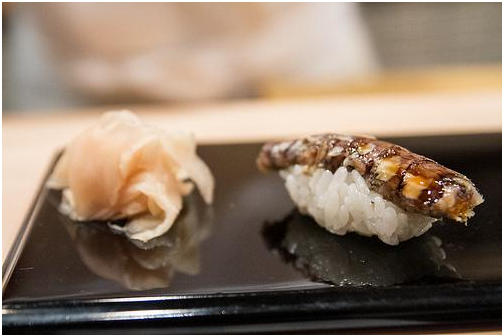Business Image: Why Simplicity is the Way to Go

In an unimpressive mall in an upscale part of Tokyo, Japan, a little old man is preparing sushi. This little old man is Jiro Ono, owner and operator of Sukiyabashi Jiro. He is considered to be the best sushi chef in the world.
In his work, preparation, and service, Master Ono defines the Japanese term shibumi every day. Shibumi is described by Matthew E. May, acclaimed author and founder of Edit Innovation, as, “Elegant simplicity. Effortless effectiveness. Understated excellence. Beautiful imperfection.” The concept of shibumi isn’t actually attainable; its pursuit, however, is considered noble and just.
Businesses are successful when they are capable of producing something effortlessly. When the only effort necessary for the growth of the company is expansion, that company is operating on a different level than its competitors. Master Ono has no grandeurs of expansion; his success lies in its simplicity. This simplicity, however, is achieved through a complex process; maybe that heightened level of simplicity is achieved by mastering and refining a sense of hyper-complexity.
Think of some of the greatest inventions in history. Ford, and its Model-T, was so groundbreaking because of its streamlined assembly process. “You can have any color you want, as long as it’s black,” Henry Ford once said, in reference to the coloring policy in the Ford plants. Ford’s assembly line as a whole produced a remarkably complex item–especially at the time–by breaking the process into multiple parts. Each station focused on one task, and nothing else. An assembly worked with Ford could, theoretically, work his entire career on engine installation station of an assembly line.
While businesses focus on expanding to reach new clients in far-flung areas of the earth, it’s the smaller companies that are focusing on a Ford-esque modus operandi, producing a near state of torpor, but spitting out a final product that the company can be proud of.
Why aspire to reach a level of Shibumi? The process of attaining it is a different way of self-promotion and self-examination. It’s a way for a company, or a person, to look at their strengths–to exploit them–and their weaknesses–to eliminate them. The end result is a level of awareness, an awareness that perfection is impossible, but the pursuit of it is a never-ending routine of self-improvement.
Streamlining the methods by which a business operates is a fantastic way to save money, and to be more effective. Nonetheless, there is a fine line between simplicity and over-simplicity to walk; attempts to make a job easier by eliminating certain moving parts can end with employees being overworked, while assigning so few tasks to employees can end with a job not getting done.
Master Ono attributes his level of expertise to, what he described in the wonderful documentary Jiro Dreams of Sushi, as having a “beginners mind,” when he approaches each piece of sushi. He does so, because he trusts that the intense and convoluted preparation process has been handled by his staff, whom he has trained for years on end. Simplifying business operations shouldn’t be considered an end goal; it should be considered as a nonstop process, done so that the company can reach a level of hyper-efficiency, with as little effort needed as possible.
Today’s blogger is Russel Cooke, a talented writer who enjoys covering the topic of business marketing, technology and mass communications. You can read more of his work by visiting his blog at VirtualPhone-Number.com




